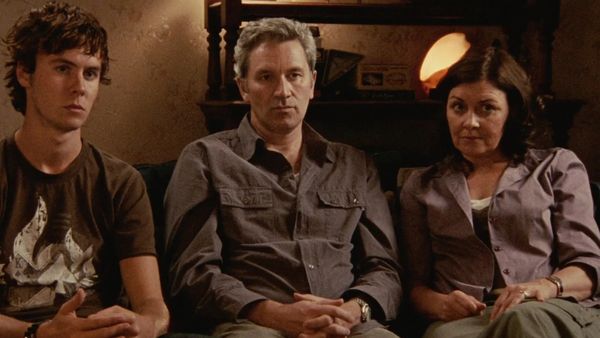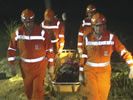Eye For Film >> Movies >> Lake Mungo (2008) Film Review
Lake Mungo
Reviewed by: Amber Wilkinson

Now, I can understand films being remade for the US market by companies who feel that our American cousins can't cope with subtitles – Ringu/The Ring, [REC]/Quarantine, Let The Right One In – despite the fact that the end result is nearly always a lot poorer than the original (I realise Let The Right One In hasn’t had its makeover yet, but I’m willing to bet*). However, surely the industry has gone mad when it decides it needs to remake what is already a perfectly good – and pretty damn gripping – English language feature, even if the actors do have Australian accents?
That is, apparently, what is to happen to Lake Mungo – slated to be remade by Paramount Vantage by 2011 – but my advice is, don’t wait, seek out this spooky little original before they fill the Stateside version with impossibly good looking, bronzed teens and ruin the understated nature of the thrills.

Shot as a fake documentary, debut feature director Joel Anderson uses the conceit well to make the most of his budget and build a spooky and haunting little film. Teenager Alice “kept secrets” says her friend, “She kept the fact she kept secrets a secret.” And when, one fateful day, she drowns at a local lake, her Mum (Rosie Traynor), Dad (David Pledger) and, particularly, brother Matthew (Martin Sharpe) find it hard to cope.
If dealing with grief isn’t enough, there’s a feeling around the house that Alice may not have quite left the building and that’s even before her ghostly image starts to show up in the family’s photographs...
Although, on the one hand a cleverly worked ghost story that never quite goes in the direction you expect it to, Anderson’s film is, for the most part an examination of the nature of grief and how the living are always destined to be haunted by the dead. When you lose someone in tragic circumstances, how do you rationalise what has happened, and, worse still, bring yourself to let them go?
Anderson’s use of the documentary framework is an inspired choice, since it lends what we’re seeing an air of reality that helps build the tension to jangling point. It also gives him the opportunity to vary the look with the use of different types of film, including Super 8 and lots of still photography, smartly serving the story while keeping a grip on what was, presumably, a very tight budget. By staying true to the audience’s expectations of the documentary format, the sense of dread that settles over the family is also more readily conveyed than it might have been if we were watching something which looked more ‘fictional’.
It’s not just the format that draws the viewer in, but also the manner in which the film is shot. Since much of what the family talk about relates to spooky images in pictures, Anderson’s camerawork draws you deeper and deeper into the frame with an increasing feeling of unease.
The acting from all the main players is naturalistic and understated – although perhaps a little too low key in some parts. Despite the fact that it has one more trick up its sleeve than is perhaps necessary, this is nevertheless an accomplished debut. Anderson’s name is rumoured to be in the frame to look after the screenplay for Warner Bros' new Twilight Zone movie. Here's hoping.
*Solid bet, it turns out.
Reviewed on: 20 Feb 2009
















